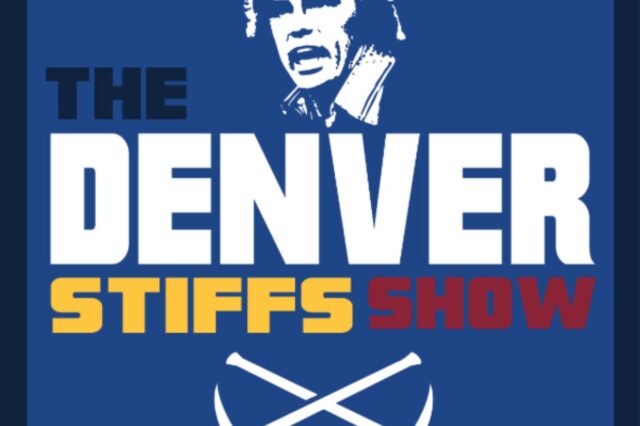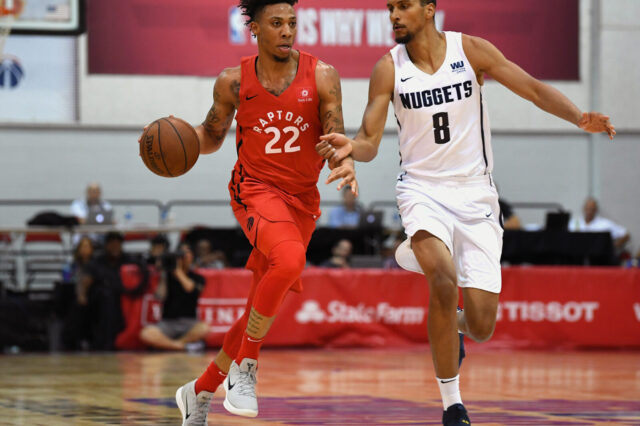“YOU GET PAID A LOT OF MONEY TO CATCH THAT BALL!!!!”
I was young, the Denver Broncos were playing, and Rick Upchurch had just dropped another easy catch. My dad wanted to be sure our next door neighbors were aware of his displeasure. My much-nearer eardrums had nearly loosed my bladder.
Upchurch was an interesting player to watch. A wide receiver who seemed to NEED to concentrate to make a catch. He could find a way to catch a ball one-handed that no human being should have had the ability to get to, let alone pull down. He was pre-ODB. But hit the guy in the hands with no defenders around, and all bets were off. My father’s words rang true with me, as though I had no idea what Upchurch was making, I knew professional athletes made a nice chunk of change. He did get paid A LOT to catch that ball. How could he not take it more seriously when the paycheck looked like THAT?
But this is not a football blog.
My wife laughs at how closely the apple fell to this particular tree, as I routinely scare her during Denver Nuggets games when she’s looked away from the action. Invariably those tend to be the moments I need to let my own neighbors know that our defense is well-remunerated to GET THEIR DAMNED HANDS UP.
I’d take that paycheck to get my hands up, wouldn’t you? The average NBA player’s salary this next season will hit nearly seven million dollars ($6,874,885, to be exact). I feel like I’d try extra hard for that sort of cheddar. Turns out, I’m dead wrong. The scientists say so, as does my own career data at this point. The paycheck doesn’t make me want to be better, I just do (or do not) want that of my own accord.
Back in 2013, the Harvard Business Review published an article that tried to look at the corollary between a person’s income and several factors in their lives, including their motivation while on the job. How good was their data? To quote directly from their article:
“The authors reviewed 120 years of research to synthesize the findings from 92 quantitative studies. The combined dataset included over 15,000 individuals and 115 correlation coefficients.”
Turns out there IS a Maslow-style corollary between pay, effort, and satisfaction for folks who are earning less than $75,000 a year (adjust that slightly, the article is four years old). When those raises simply help you meet your basic human needs, you tend to be very motivated to make them happen. Once you start to pass a point of comfort though, the fall is rather dramatic. The article has an illustrative quote from the former Governator, Arnold Schwarzenegger, tying money to happiness:
“Money doesn’t make you happy. I now have $50 million but I was just as happy when I had $48 million.”
It’s not just happiness that flatlines when cartoonish levels of income enter the picture. The article’s data suggests that earning exorbitant sums of money can actually be a demotivating factor, or at least show out the people who lack that internal motivation. It makes great sense, when you think about it. Once you’ve reached an income that seems as if you’ll be set in perpetuity, you may be less concerned about effort, let alone self-improvement.
Well, if the paycheck doesn’t matter, what about the phenomenon of the “contract year” in the NBA? The league is lettered with examples of guys playing their best ball in years where that next contract is pending, right? While a player may play a different brand of ball when he’s looking for his next deal, there are a lot of papers out there suggesting that they don’t necessarily play better, at least from the point of improving their stats. I found papers from some real geeks pushing their data in both directions, but was most compelled by a Claremont College senior thesis from Tyler Gaffaney, written in the same year as the Harvard article. Gaffaney’s paper (43 pages, bring a light snack) breaks the issue down across several matrices, though only from a single season. It’s compelling stuff just in seeing what’s NOT there in the data, and suggests that player’s overall performance doesn’t necessarily improve in a contract year. I want to keep reading on this topic to look for more definitive stuff, as I’ve always thought the contract year a very real occurrence.
But stats are not always tied to motivation, and a player can change his attitude, level of sacrifice, and effort in a season without greatly impacting his stats, while still probably increasing his chances of being attractive to more teams when he’s on the open market. That NEXT check may still tie into motivation, more than the current check ever seems to. I’m sure that characteristic is not unique to the NBA player. The study goes so far as to suggest that people who are motivated by the check tend to not only be the least happy, but the poorer performers over the long haul.
It makes those players that do find that motivation all the more special, as what is driving them is borne from themselves, instead. A glowing recent example of that motivated player is shooting guard Gary Harris of your Denver Nuggets. Harris has spent his first few offseasons improving his game and skillset in the moments that no one else is watching. When offered a break he went off and turned himself into something more by the time he returned. It’s always interesting to see which of the players spent their offseasons in ways that help them, whether improving their bodies or their play, somehow.
What say YOU, Nuggets Nation? Does money motivate you to try harder or do better? If not money, what drives you to be more? How do the Denver Nuggets motivate their guys, if the paycheck isn’t what’s doing the trick? Apparently you don’t always do as well when your mind’s on your money, and your money’s on your mind.
This content is no longer available.


